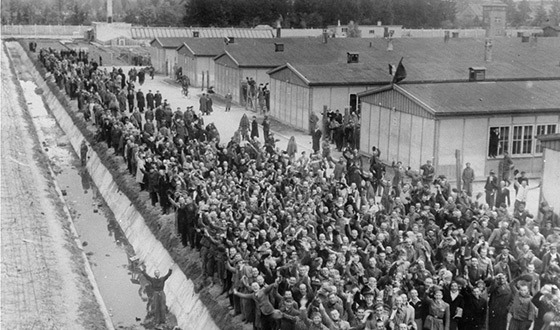Weleda, a Swiss-based natural cosmetics company with a cult following for its baby creams and skin care lines, announced it will launch an independent investigation into its Nazi-era history following revelations that its products were tested on concentration camp prisoners in Dachau during World War II.
The disclosure, unearthed by German historian Anne Sudrow in a new book published under the auspices of the Dachau memorial, ties the company directly to some of the regime’s most grotesque human experiments. Nazi doctors, including SS physician Sigmund Rascher, subjected roughly 300 camp prisoners to ice-water submersion tests to determine whether a Weleda skin cream could prevent frostbite in German soldiers. Between 80 and 90 victims died in the process.
Sudrow reported that former Weleda employees not only helped oversee the experiments but also reported results back to company management. She also documented that the firm benefited from Dachau’s forced labor, buying medicinal herbs cultivated by prisoners at reduced cost.
The revelations contradict the company’s previous in-house research. As recently as last year, Weleda maintained there was no evidence linking it to Nazi medical abuses. A corporate webpage describing its activities from 1933 to 1945 emphasized alleged persecution by the regime while insisting the company did not participate in “inhumane policies.” That page was quietly removed this week.
“All of this new research gives us reason to revisit our history in depth with a large, independent study,” Weleda CEO Tina Müller said in a statement, pledging a two-year review. The company also issued a broad denunciation of Nazism, declaring, “Fascism, anti-Semitism, racism, or right-wing extremist ideology have no place in our company. ‘Never again’ expresses our stance.”
Founded in Germany in 1921 and shaped by Rudolf Steiner’s anthroposophical movement, Weleda grew into one of Europe’s most prominent producers of natural cosmetics, today operating in 50 countries with revenues exceeding €450 million. Its diaper cream has become a niche staple in the United States.
Weleda’s reckoning follows a pattern set by other major German firms, including automakers and banks, which have commissioned independent studies into their wartime activities and contributed to Holocaust remembrance initiatives. In 2019, the Reimann family, heirs to a consumer goods empire, created the Alfred Landecker Foundation after admitting their predecessors used forced labor under the Nazis.
(YWN World Headquarters – NYC)












2 Responses
Adidas conducted similar sadistic product testing on the prisoners of Sachsenhausen, with the enthusiastic help of the Waffen-SS. The emaciated Jewish prisoners were forced to walk miles around a boot testing track in shoes sometimes 3 sizes too small. This was part of the “Schuhläuferkommando” (Shoe Running Detail). Anyone who keeled over or even winced in pain was brutally beaten or even shot. No self-respecting Jew should ever buy or wear Adidas.
Ari Knobler:
“No self-respecting Jew should ever buy or wear Adidas.”
So, because the company benefited from atrocities against Jews about a century ago, that means that the company should be off-limits forever? What about using computers, which were originally made for the camps? What about medicines from Bayer or the like?
This seems silly.
If there were soap being sold that came from murdered Jews, then obviously it would be terrible to purchase that. But to buy something from a company that did terrible things almost a century ago is a very different situation.